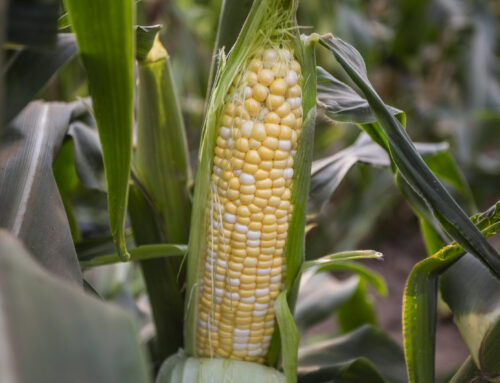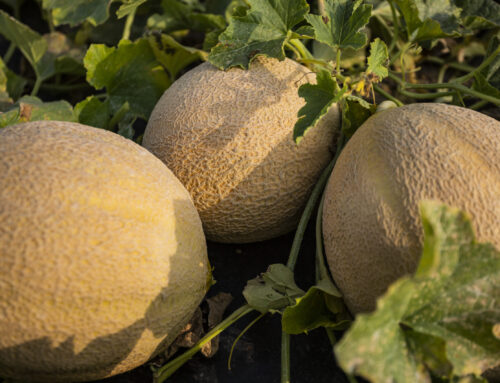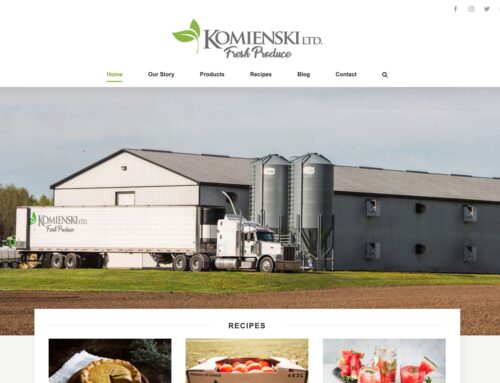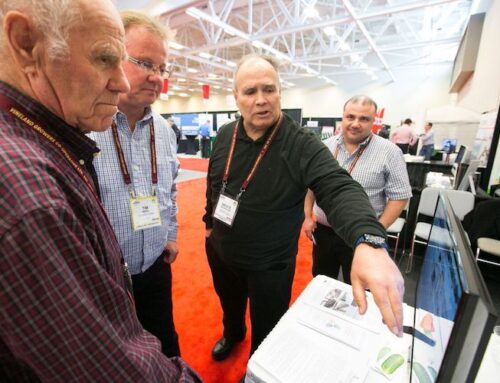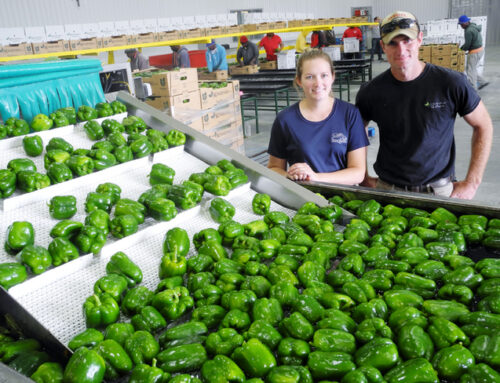Minimum wage hike ‘too fast’ over ‘too much’: Komienski
Diversified fourth-generation operation featured on Norfolk ag tour
Komienski Farms employs around 100 in total said Komienski, a workforce including an eight-member Toronto sales and delivery team, and roughly 70 offshore labourers.
“If we ever lost that program, it would be a big game-changer for Norfolk,” he stated.
The proposed rise in minimum wage will represent an additional $150,000 in annual labour costs he continued, admitting ‘That’s going to be a tough one.”
Komienski sees the major problem with the increase being the potential impact on Ontario producers’ ability to compete in a global marketplace.
“If everybody’s paying it, then everybody’s paying,” Komienski said, noting that since they aren’t, the hike represents a competitive disadvantage. “That disadvantage is going to be tough to swallow.”
The wage hike won’t only apply to the minimum, Komienski continued.
“Your whole workforce is affected,” he said, noting longer-term employees will also require some form of upgrade. “They have to be brought up a little bit too.”
The new facility is concrete proof Komienski Farm Ltd. is committed to a fourth generation: office administrator Nicole Simons, Tom Jr. and wife Davina. The beautiful new 30,000-square-foot structure features administration space along with expanded production and cold-storage facilities.
Komienski Farms Ltd. is a family-owned and operated business founded in Norfolk in the 1930s by Tom Sr.’s grandfather Walter and grown by his father Stan, in what the family believed was the ‘greatest county in the province.
“And still strongly believe that,” Komienski said. “I think we’ve got something great here.”
Norfolk’s reputation as ‘Ontario’s garden’ is one extending well beyond county borders said Komienski.
“We’re on the map, and it’s growing.”
Komienski Farms has grown too, from a base of sweet corn and potatoes to include cantaloupe, strawberries, beans, watermelon and squash, and new avenues including tomatoes, peppers and a planned spring 2018 asparagus planting. Loblaws, Sobeys and Metro are among the operation’s current customers for cantaloupe and sweet corn, among the ‘four or five’ loads of produce shipped daily to destinations including Toronto’s food terminal. A commitment to high-quality, Canada GAP (good agricultural practices) certified fresh produce includes drip irrigation, plastic mulch and staked tomatoes, which increase marketability, said Tom Jr. who is in charge of day-to-day farming operations.
“You get more number 1 product and less waste in the field.”
Seven hundred acres of vegetables are rotated between cash crops on 1,400 total acres, which said Tom Jr., both reduces disease and improves yield.
“You notice it in the fields big-time.”
The family believes diversity is key to continued success and has related operations including broiler chickens, Sam’s Place Farm Market (a greenhouse and retail outlet two minutes south of Scotland along Highway 24 featuring Komienski, other local and some food terminal produce overseen by Tom Jr.’s wife Davina), and a wholesale company buying and selling produce throughout the winter months.
Tom Jr. referred to a search for “corner-cutting and efficiencies” to overcome the dramatic and abrupt hike in minimum wage.
“It’s not impossible, but we’re going to have to be smarter about it.”
His father indicated the operation’s diversity will hopefully help buffer what nevertheless represents a significant challenge to all labour-intensive operations, Komienski Farms included.
“We’re going to work at it and try and survive.”


